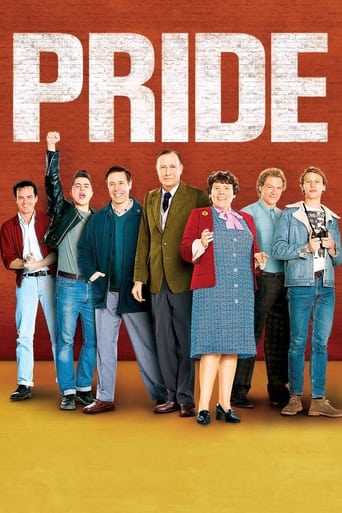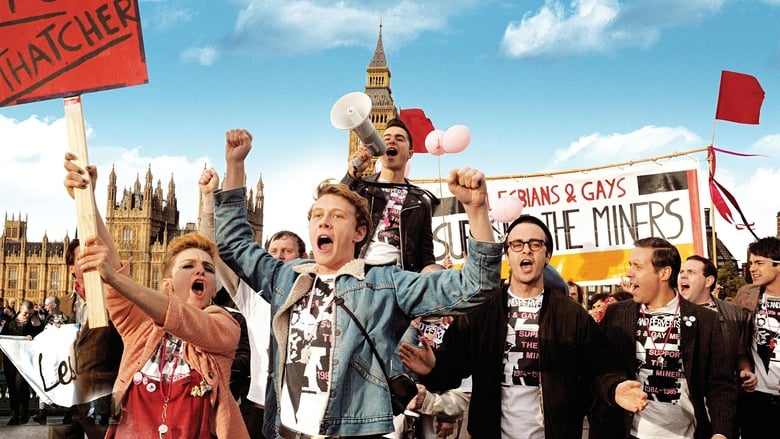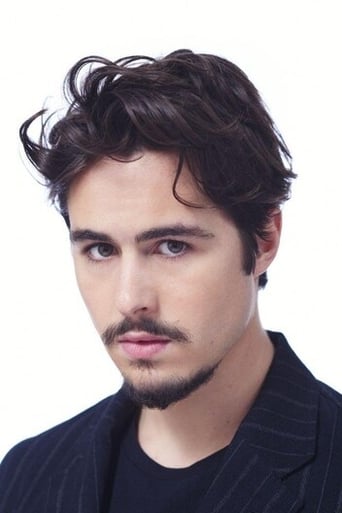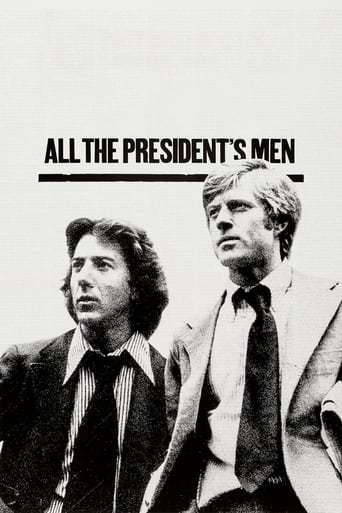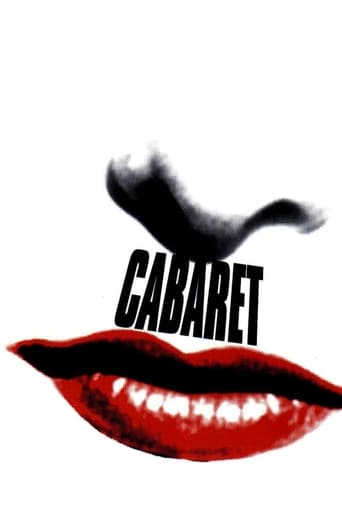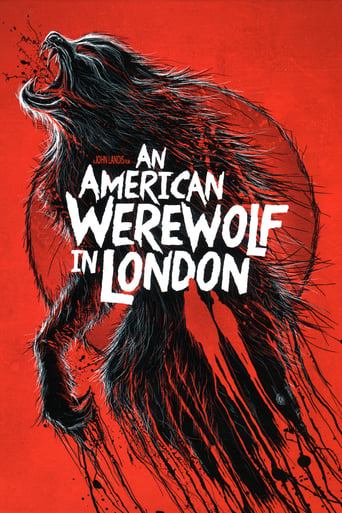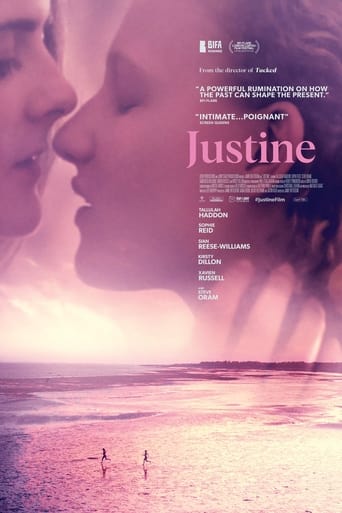Pride (2014)
In 1984, a group of LGBT activists decide to raise money to support the National Union of Mineworkers during their lengthy strike. There is only one problem: the Union seems embarrassed to receive their support.
Watch Trailer
Cast
Similar titles
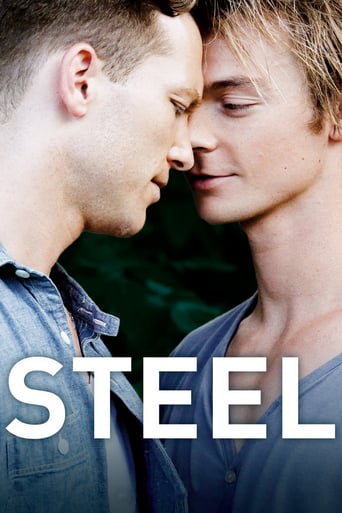


Reviews
Good start, but then it gets ruined
Fun premise, good actors, bad writing. This film seemed to have potential at the beginning but it quickly devolves into a trite action film. Ultimately it's very boring.
While it is a pity that the story wasn't told with more visual finesse, this is trivial compared to our real-world problems. It takes a good movie to put that into perspective.
Blistering performances.
When I heard about this British film, I knew it was LGBT (lesbian, gay, bisexual, and transgender) related, and critics described it as tapping the same formula as The Full Monty and Billy Elliot, I was looking forward to it. Based on a true story, in the summer of 1984, at the time of the miners' strike, Mark Ashton (Ben Schnetzer) is a gay activist, joining the Gay Pride Parade in London, and 20-year-old student Joe Cooper (Sunshine on Leith's George MacKay) from Bromley is exploring his own sexuality, he watches the parade, before becoming part of it. Soon enough Joe joins a small group of Gay and Lesbian activists led by Mark, they plan their protests and actions from bookstore Gay's the Word, run by gay couple Gethin Roberts (Spectre's Andrew Scott) and Jonathan Blake (Dominic West). Mark says that the gay community are not being harassed by the police as much, because the miners are their new targets, with many police officers violently arresting and beating them, and just like the gay community, the public and government are hostile towards them, and the subject of smear campaigns from the tabloid newspapers. Mark announces the formation of "Lesbians and Gays Support the Miners" to help raise money, many activists refuse to join, because of past experiences of discrimination and aggression from miners against the gay community. Therefore, LGSM consists of "six gays and a dyke", they start raising money immediately, and Joe is their official photographer, their actions prove successful. The National Union of Mineworkers however is reluctant to accept their support, worrying about associating with a gay group. Frustrated with the lack of response, the activists instead go directly to a mining village, they choose Onllwyn, a small mining village in Wales. They are excited to have money raised by the LGSM accepted, but spokesperson Dai Donovan (Paddy Considine) comes to London, where he discovers they are a gay and lesbian group, he admits to never meeting gay people before, to which Mark responds he has never met a miner before. Dai quickly realises the importance of the alliance between the two communities, he is asked to give a speech at the local hall, the gay and lesbian crowd are sceptical and hostile at first, but with an eloquent speech, he wins their hearts and minds. Siân James (Jessica Gunning), starting volunteering at the community centre, overhears the Women's Support Group debating whether to invite LGSM to their village, despite her husband Martin (Rhodri Meilir) urging her not to make herself stand up, she speaks out to invite the LGSM, and she becomes a member of the Women's Support Group. It is soon clear some are unwilling to let the gays come over, Maureen Barry (Lisa Palfrey) vehemently opposes the gay and lesbian support. When the LGSM arrive in Onllwyn, they are met by a silent and hostile crowd, and Mark's clumsy speech does not improve the situation, with many walking out. The next day, the LGSM are taken sightseeing around the countryside by Siân and Cliff Barry (Bill Nighy), in the distance they see police arresting more miners, a form of harassment against the miners, Jonathan says to Siân they are doing it unlawfully. The miners celebrate their release at the community centre, following Siân barging into the police office to demand they be freed, most miners now regard the LGSM as allies. That evening at the community centre, the gays and lesbians feel the sense of community among the villagers, letting go of their own prejudices against the miners, Mark announces that the LGSM will organise a spectacular fundraising event, to make the government meet the miners' demands, but there is no idea yet. Maureen Barry, bitter about the miners and support groups embracing the gays and lesbians, contacts a tabloid about the LGSM, the next day the police show up, and The National Union of Miners urges the Onllwyn support group to sever ties with the LGSM. Mark and the group read the newspaper headline, being called "perverts", they decide to adopt this term, and create a music festival event, titled "Pits and Perverts", taking place at the Electric Ballroom in Camden Town. At first no record label is willing to have their artists play at the festival, but eventually they secure Bronski Beat, members of the Men's and Women's Support Groups from Onllwyn and other villagers show their interest and come to London, and the festival is a huge success. The next day there is supposed to be a meeting, but when it is rescheduled, and the LGSM arrive late, ties with the support groups are severed, Cliff and Martin, lacking the eloquence of Dai, could not stand up for them. Siân and the other women confront Maureen, she believes the LGSM were only supporting the miners for their own gay rights agenda, but Siân shows the thousands raised by at the festival, they use it to buy a red van, driven by Hefina (BAFTA nominated Imelda Staunton), to transport the miners to protest rallies. In March 1985, the Miners' Strike ends, the miners of Onllwyn go back, Joe sees them off, Mark has alienated himself from the LGSM, after a personal crisis over his fear of contracting HIV, he confronts Joe about hiding his homosexuality from his parents, Joe eventually confronts his parents and makes his own choice to leave them. The LGSM and Lesbians Against Pit Closures attend the 1985 Gay Pride Parade, the LGSM are disappointed at first about not being allowed political signs, but the red van shows up, and several of the villagers join to support them. The parade organisers tell them to go to the front, as there are too many people, including hundreds led by the National Union of Mineworkers. In the end, in 1986 the Labour Party incorporated rights for gays and lesbians in their party programme, due to pressure from the National Union of Mineworkers, and the end text says what many of the characters did next. Also starring This Is England's Joseph Gilgun as Mike, Matthew Flynn as Tony Cooper, Freddie Fox as Jeff Cole, Liz White as Margaret Donovan, Monica Dolan as Marion Cooper, Harry Potter's Jessie Cave as Zoe and Russell Tovey as Tim. The cast are all well chosen for their parts, with many of these kinds of films, it is funny, moving and dramatic in the rights places, it has a great witty script full of terrific one-liners, a splendid soundtrack of songs, and it has many feel-good moments in amongst the realistic and powerful serious points, all together it is an enjoyable historical comedy drama. It won the BAFTA for Outstanding Debut by a British Writer, Director or Producer for writer Stephen Beresford and producer David Livingstone, and it was nominated for Best British Film, and it was nominated the Golden Globe for Best Motion Picture - Comedy or Musical. Very good!
I watched the Matthew Warchus-Stephen Beresford offering "Pride" just days after media heralded the first week in centuries in which the UK engaged in no large-scale power generation from coal. I use the word "heralded", since - while there were many references to that being "historic", it was hard to see much regret. Today, coal is viewed as a dirty source of CO2. The fact that we might someday need some for strategic purposes - just in case - seems wrongly skimmed over, but should we really mourn the passing of coal as main everyday fuel? This is a first key perspective against which "Pride" can be set, while the second concerns the relatively recent death of Lady Thatcher - a person who receives zero sympathy in this film, as well she might not given the authentic recreation of the circumstances of 1984. However, this is 2014 work that refuses to acknowledge what Maggie knew - that each taxpayer had by 1984 been subsidising the coal industry for decades to the tune of thousands. This is likewise a film ready to simplify Arthur Scargill down into a hero-leader of working miners, and to present police officers as little more than suppressors of rights ready to deploy physical and verbal abuse against strikers. Finally, it is a film largely unprepared to acknowledge that miners lived short, dirty, diseased and unpleasant lives that few would envy, and that many did their level best to escape from. The closest we get to this last recognition is a brief line uttered by Bill Nighy's character "Cliff", who makes it clear that members of his close family have been killed by their occupation.In short, and with the best will in the world, "Pride" is irrevocably pro-miner, decades after the events, showing how opinions on the miners' strike will remain divided - perhaps forever, with black v white, and little nuancing or attempt to present both sides of the argument.Interestingly, your reviewer is not quite like that...While this film cannot persuade me to renounce my admiration for "Maggie" overall, I do find sympathy for the miners' cause evoked in me by "Pride" (just as I find it evoked by "Brassed Off" - the similarly-themed Mark Herman film made in 1996, hence far closer to the portrayed events). I AM NOT made of stone, even if the makers of "Pride" seem to be.Of course, "Pride" goes beyond the strike per se to report the remarkable alliance struck up between young male and female homosexuals and Welsh miners at a time when anti-Thatcher sympathies were NOT enough to bridge gaps of prejudice, even when the L&G community did all they could to raise funds to help the miners and their families. The fact that these were often English city-dwellers from the "soft South" made the divide even more visible!This is obviously then an amazing story worth telling, and it is here told with warmth, insight and humanity, and indeed - in this dimension at least - with the necessary nuancing. AIDS was just getting going then, and potential sufferers and society were both scared, for the same and different reasons. This ensured that anti-gay sentiment gained reinforcement just at a time when sexual-minority rights would otherwise have been making further progress. Even the 21 age of consent for male homosexuals was still in place. It was a quite different world, and one that gains authentic presentation.The aforementioned Bill Nighy plays far from his usual part, and is perhaps the most compelling character - a quiet, poetic soul thrilled by mining history and culture, though not quite blind to its costs, a repressed homosexual himself and a gentle man resorting to the strongest possible language as he spews out his loathing of "Thatcher". His fellows in the mining community include the reasonable, bridge-building "Dai", whose portrayal by Paddy Considine is just right. And, needless to say, Dai's mix of crusading and pragmatism at first gets far more support from the true unsung heroes of every such industrial village - the wives and mothers. Here we get quite superb performances from Imelda Staunton as the gung-ho Hefina, as well as the quieter kindness personified of Gwen, played by an excellent Menna Trussler. On the L&G side there is an absolute plethora of great acting to savour, be it from Faye Marsay as the lovely (in every sense) "Steph" or Dominic West as older gay actor Jonathan Blake - in real life still alive in 2017, despite being among the first people in Britain to be diagnosed HIV+. Then of course there is our hero "Joe", played by George Mackay; Gethin (Andrew Scott) and real-life early AIDS victim Mark Ashton - also a communist (though the film chooses not to go there), who is just superbly played by Ben Schnetzer. On this side of the film, this is an ensemble chosen with care to offer a non-stereotypical presentation of the whole spectrum of types and personalities that the lesbian and gay community (just of course like ANY OTHER COMMUNITY) can muster.Ultimately, "Pride" remained an at-times uncomfortable watch for me, but solely because I believe the cynically manipulative and self-adoring Scargill had an agenda beyond UK pits, while Maggie had a duty (was repeatedly elected) to see the big economic (and even environmental) picture. That is also a story that will need telling someday. In the meantime, here is a film that I still appreciated greatly, portraying an incongruous and priceless situation from history enjoyably, thoughtfully and deftly, through truly classy performances.But concession-making is a two-way process. If I can swallow my "pride", sacrifice political beliefs to see the merit in (and even feel sympathy for) arguments presented by the other side, well perhaps so also can they, one day...
This is British Film in 2014. This is the story about sexual minority and the strike by miners, and based on a true story. They have no connection at first, but they are getting along to gradually. In 1984, miners in the UK strike. People who are sexual minorities such as lesbian and gay begin to whip-round for them. They try to contribute money that they gathered to The British Labor Union of Miners, but they refuse to be supported by LGSM because, at that time, there are few people who declare about their homosexual nature. They refuse many time, however, the members of LGSM do not give up and decide to support the coal pit in Wales. Feeling the members' passion and consideration, miners and their families start to understand them and they become good friend. The theme of this film is very new and I was very impressed by it. In Japan, it is still disturbed that LGBT people declare about themselves. Although some sexual minority entertainers appeared in TV there days, many children are tormented by the problem that they can not talk about it to their parents or friends because of prejudice in Japan. I think many people are visiting to Japan in the future. In the world, many countries start to understand and admit the right of LGBT people. Japan should move on like them. This film make you think about LGBT people and their situation, feeling and worries about their future that they may can not be understood by their parents and friends. It is great opportunity to know about the UK situation and whole LGBT problem.
Everybody who was involved in this film should be proud of Pride.Gives a slice of what was occurring in the 80's. Top performances throughout and brilliantly directed .All manner of accents and ideas with pseudo-clichés come together to form a beautifully told tale of how the bullied come together en- masse to conquer small minded bigotry.Every now and then the film slips into negative mode to show us the deflation of battle but then stands up to be counted.Paddy C gives a fantastic performance ( having just seen him in Dead Mans Shoes..is there a better actor ANYWHERE) and everybody else stands up to make this a superior British comedy drama.
